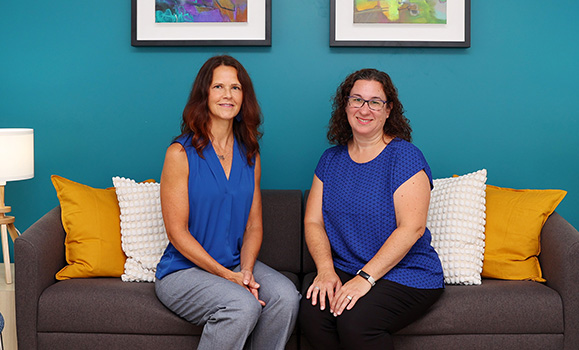Last week (Friday, July 26), the Nova Scotia government’s Office of Addictions and Mental Health announced funding to create four new clinical psychology residency seats that will be housed at Dalhousie University.
Starting in fall 2025, the new clinical psychology residency program will include four residency seats that will be split between the Dalhousie Centre for Psychological Health and the Student Health & Wellness Centre. The 12-month positions will see residents rotate through the two sites, gaining experience working with each centre’s distinct client populations.
One of the four seats will be reserved for a senior doctoral student in the Department of Psychology and Neuroscience’s clinical psychology PhD program.
Improving access
In a , Minister of Addictions and Mental Health Brian Comer discussed the need to increase the number of clinical psychologists in Nova Scotia.
“Residency seats are not easy to create, and I’m pleased to support this program that increases our efforts to train, recruit and retain more healthcare professionals so Nova Scotians can continue to receive timely access to important mental health and addiction services,” he said.
The government is investing $311,025 beginning in the 2025-26 academic year to support the residency program.
There are currently 14 clinical psychology residency seats in the province, housed at Nova Scotia Health, IWK Health, and the Canadian Forces Health Services Centre Atlantic.
Drs. Cheryl Aubie and Jason Chatman will serve as co-directors of training for Dal’s clinical psychology residency program. More information, including a 2025-26 residency program brochure, can be found on the Dalhousie Student Health & Wellness website. Residency program applications are being accepted until November 15, 2024.
Growing Dal’s community clinic
The Dalhousie Centre for Psychological Health officially launched in September 2023 after receiving $4.5 million in operational funding from the provincial government. To date, 30 Dal clinical psychology PhD students have conducted placements in the clinic.
Dr. Alissa Pencer, co-director of the Centre for Psychological Health along with Dr. Shannon Johnson, points out the advantages the clinic can provide to residents, especially those looking to remain in Halifax.

Drs. Shannon Johnson and Alissa Pencer, co-directors of the Dalhousie Centre for Psychological Health
“We can offer training opportunities not often available in residency programs, such as couples therapy, adult neurodevelopmental services, and training from a lifespan approach,” she says. “Having this residency program at Dalhousie also allows our clinical psychology PhD students to stay in Halifax for their required residency year rather than possibly having to leave the province.”
Dr. Pencer also says having additional residents on staff will allow the centre to expand its offerings to the exclusively low-income client base it serves. Since opening, over 1,100 sessions have been provided to more than 300 clients. Clients have been referred by 22 different community organizations and local health clinics.
Increasing mental health services at Dal
In addition to providing primary health and mental health services to students from Dal and the University of King’s College, Student Health & Wellness also offers supervised training opportunities for students enrolled in professional health programs.
The Student Health & Wellness Centre has not previously hosted full-year doctoral psychology residents, and their presence will help broaden its training mandate and allow the centre to see more clients accessing counselling and psychological services, says Dr. David Pilon, director, counselling and psychological services, Dalhousie Student Health & Wellness.
“Residents are typically in their final year before licensure and independent practice, so they bring a host of well-established skills and experiences to support our student clients,” says Dr. Pilon. “Residents will also be coming from across Canada, so may bring unique training backgrounds that will complement our team’s efforts.”

